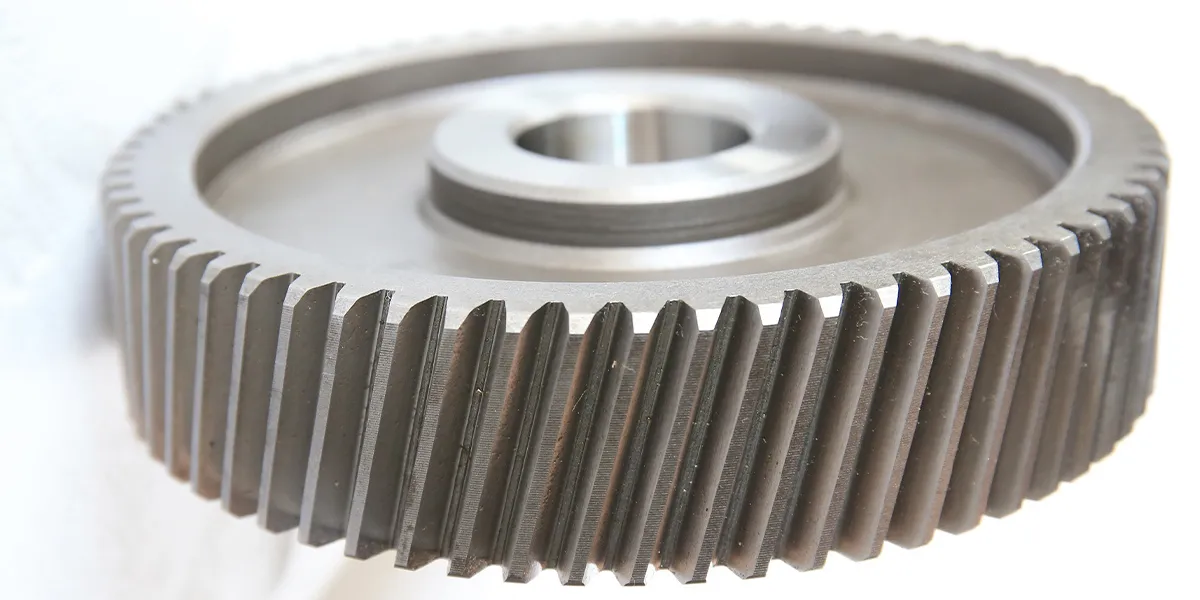Cleaning and maintenance of marine gearboxes are important links to ensure equipment performance and extend life. This article details the key steps of cleaning, such as waste oil discharge, component disassembly and cleaning, housing cleaning, wear inspection, lubrication assembly and commissioning. At the same time, the article also provides operating precautions and regular maintenance recommendations to help maintain the gearbox more scientifically and improve its reliability and operating efficiency.
Preparation
Before cleaning the gearbox, you need to make adequate preparations to ensure the safety and effectiveness of the operation:
-
Equipment shutdown and power off
Make sure the gearbox stops running completely and disconnects the main power supply to avoid danger caused by accidental startup. Post a power off operation sign when necessary.
-
Tool and cleaning agent preparation
Prepare special cleaning tools (such as soft brushes, towels, etc.) and environmentally friendly cleaning agents suitable for gearboxes. Avoid using overly corrosive cleaning agents to avoid damaging the surface of components.
-
Personal protection
Wear protective equipment, including gloves, protective glasses and masks, to prevent cleaning agents or dirty oil from causing damage to the skin and eyes.
-
Working environment and safety measures
Set up safety warning signs in the cleaning area and use warning lights to remind other staff to stay away from the operating area to ensure that the cleaning process is not disturbed.
Cleaning steps
-
Drain waste oil
Open the oil drain port at the bottom of the gearbox, drain the waste oil, and record the discharge volume and oil quality. If the amount of waste oil is abnormal or there are obvious metal debris, a comprehensive inspection should be carried out inside the gearbox.
-
Disassemble the parts
Carefully disassemble the main parts inside the gearbox (such as gears, bearings, shafts, etc.), and mark and number each part so that there will be no confusion during subsequent assembly. At the same time, pay attention to check the surface condition of the disassembled parts and record any abnormalities.
-
Cleaning the housing
Open the oil drain port at the bottom of the gearbox, drain the waste oil, and record the discharge volume and oil quality. If the amount of waste oil is abnormal or there are obvious metal debris, a comprehensive inspection should be carried out inside the gearbox.
-
Cleaning the internal parts
Put the gears, bearings and other parts in the cleaning agent for a period of time, and gently brush off the surface oil and sediment with a soft brush. After cleaning, rinse with clean water, then dry with a lint-free towel, and place it in a ventilated place to dry naturally.
-
Check wear and failure
Carry out a comprehensive inspection of the cleaned gears and bearings to observe whether there are cracks, wear or deformation. For severely damaged or worn parts, they should be replaced in time to avoid affecting the performance of the equipment.
-
Lubrication and assembly
Reset and assemble the parts one by one according to the marks during disassembly, and evenly apply an appropriate amount of high-quality lubricating oil on the gear contact surface and bearing. Ensure that each component is installed tightly and in the correct position.
-
Commissioning operation
Reconnect the power supply and start the gearbox for trial operation. Carefully observe whether the equipment runs smoothly and whether there is any abnormal noise, vibration or oil leakage. If any abnormality is found, the machine should be stopped immediately and the problem should be checked.
Precautions
During the cleaning and maintenance process, the following matters need to be paid attention to to ensure safety and cleaning effect:
-
Choice of tools and cleaning agents
Make sure the gearbox stops running completely and disconnects the main power supply to avoid danger caused by accidental startup. Post a power off operation sign when necessary.
-
Tool and cleaning agent preparation
Avoid using sharp tools or highly corrosive chemical cleaning agents to avoid damaging the surface of gearbox components. It is recommended to use environmentally friendly cleaning agents that are friendly to metals.
-
Operation strength and method
Avoid excessive force or rough operation during cleaning to avoid damage to precision parts. Especially when handling gears and bearings, be gentle and patient.
-
Regular recording and tracking
After each cleaning, the cleaning time, cleaning agent usage, waste oil characteristics and inspection results of gearbox components should be recorded, and a detailed equipment maintenance file should be established for long-term monitoring.
-
Environmental protection/b>
The discharged waste oil and cleaning waste liquid should be collected centrally and properly handled in accordance with environmental protection requirements to prevent environmental pollution.
Maintenance Tips
-
Regular maintenance
It is recommended to perform a comprehensive cleaning and inspection every 3-6 months according to the workload and use environment of the gearbox. If it is under high temperature, high humidity or heavy load conditions for a long time, the maintenance cycle can be shortened appropriately.
-
Lubrication management
Regularly replace the gearbox lubricant and select the type of lubricant that meets the equipment requirements to reduce friction and wear and extend the service life of the equipment.
-
Monitor the operating status
Through vibration monitoring, temperature detection and other methods, potential problems of the gearbox can be discovered in time to avoid downtime accidents caused by equipment failure.
Cleaning and maintenance of marine gearboxes is a key link to ensure the safe operation of ship power systems. Through scientific and standardized cleaning operations and regular maintenance, the life of the equipment can be effectively extended, the operating efficiency can be improved, and the safety hazards caused by component wear or failure can be avoided. Only by maintaining good daily cleaning and maintenance habits can the core role of marine gearboxes in ship power systems be fully utilized.



